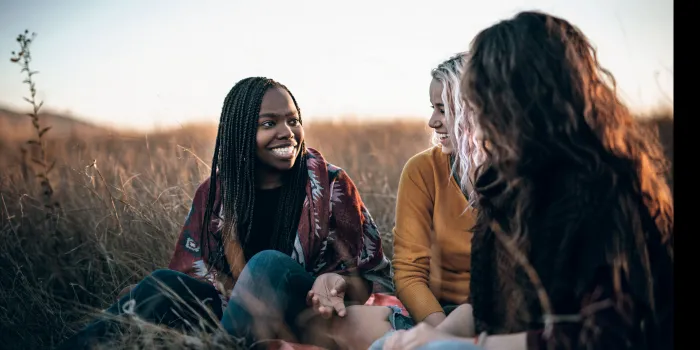For years, Shari Luckey has gone to Hemophilia Foundation of Michigan’s women’s retreats to share information and bond with women like herself whose lives are affected by bleeding disorders. “Oftentimes we overlook ourselves because we’re focused on our children’s issues,” says Luckey, 49, of Ypsilanti, who along with her four children has a bleeding disorder.
Each year hundreds of women across the country attend similar gatherings. The events are typically open to women with bleeding disorders, carriers, spouses and caregivers.
Fun and relaxing, these retreats and conferences provide a lifeline to women with bleeding disorders, who are still often neglected by the medical community. “So often women with bleeding disorders aren’t getting the attention they need,” says Lynne Kinst, executive director of the Central California Hemophilia Foundation. “It can be validating to have something just for them.”
Information and empowerment
Women’s retreats offer a forum to discuss medical issues that may not be addressed elsewhere. Retreats for carriers and women with hemophilia organized by the Bleeding Disorders Association of Northeastern New York have included talks on treatment options and the genetics of bleeding disorders, says Laura Kinson-Curtin, the association’s executive director.
Mother-daughter programming gives moms and their teen daughters a chance to discuss challenges surrounding menstruation and other topics. Similarly, at a recent retreat by the Central California Hemophilia Foundation, a hematologist offered recommendations for talking to ob/gyns about bleeding disorders. “The women learned about how to build the partnership between the ob/gyn and the hematologist,” Kinst says.
Retreat programs also help women become better self-advocates when navigating the healthcare system. “Women often aren’t being heard by their physicians,” says Kinson-Curtin. “But when we give them the tools, they can change that. I will hear women say, ‘My physician was not listening to me and now she or he is,’ or, ‘I’ve gone to another physician who is listening to me, hearing my issues and treating me as someone with a bleeding disorder.’”
Support and self-care
Just as important as the educational and advocacy aspects are the emotional benefits of women’s retreats. “It’s a time for women to be together and share experiences and connect over common challenges and struggles,” says Patrice Thomas, MS, MSW, who has organized numerous women’s retreats in her role as director of program services at the Hemophilia Foundation of Michigan.
Thomas says such gatherings can be helpful for all women, whether they have been involved in the bleeding disorders community for generations due to their medical or family history, or if they are new to it. “People get diagnosed at all different ages,” she says. “We have some in the community who were the only ones, who grew up not knowing anyone else with a bleeding disorder.”
Retreats and other women’s programs give women the space to air uncomfortable feelings, from anxiety to anger, much of them stemming from the failure of the medical community to recognize the toll bleeding disorders have on women’s lives. In addition, says Kinson-Curtin, “there are a lot of emotions when you’re carrying this genetic disorder and you pass it on to your child. You have to forgive yourself.”
Socializing with others who share similar challenges makes it easier to cope. “I’m never surprised when I have crafts or s’mores planned around the fire pit and the women or the mothers and daughters are still in the cafeteria talking and the staff is cleaning up around them,” Kinson-Curtin says. “They’re just sitting there chatting, happy to have someone to talk to about the same issues and concerns that they have.”
No wonder friendships forged at women’s retreats often continue after the participants return home. “Afterward I see them posting on each others’ Facebook pages, encouraging each other and commiserating,” says Kinst.
A dose of self-care can also help. Retreats often incorporate yoga, meditation, exercise classes, aromatherapy and chair massages. “Women typically are the caregivers of the family. They tend to carry a big weight,” Kinst says. “We give them the opportunity to be away and be pampered a little bit.”
“When my kids were younger, I wasn’t able to do those kinds of things,” says Luckey, who now is advocacy and outreach coordinator at Hemophilia Foundation of Michigan. “It’s so nice
to get away for a weekend and enjoy such things, get to learn a little bit about my bleeding disorder, and meet up with friends whom I sometimes only see once a year.”
Get reliable information and connect with other women anytime at NHF’s website: victoryforwomen.org

